
Petaling Jaya, Selangor
Uterine Fibroids
Understand Your Symptoms & Treatment Options
While some fibroids are small and symptom-free, others can cause significant discomfort, heavy periods, or even fertility problems.
Discover Safe & Minimally Invasive Solutions by Dr Debbie.
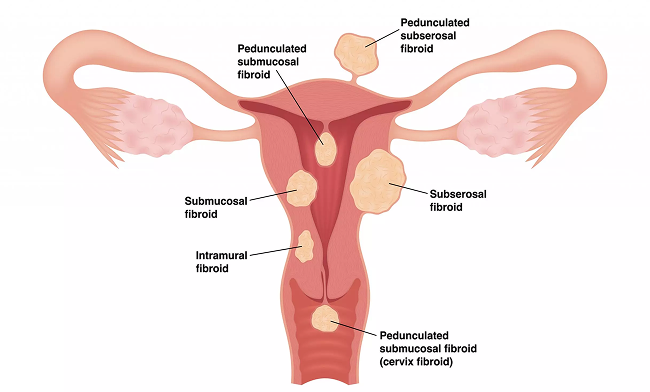
What Are Uterine Fibroids?
Fibroids are non-cancerous muscle and tissue growths that develop in or around the uterus.
They vary in size—from as small as a seed to as large as a melon—and can grow in different locations:
Intramural : Within the Uterine Wall
Subserosal : On the Outer Wall
Submucosal : Under the Inner Lining (May cause heavy bleeding)
Pedunculated : Attached by a Stalk
Symptom Checker
Do you experience these?
![]() Heavy or prolonged periods
Heavy or prolonged periods![]() Pelvic pain or pressure
Pelvic pain or pressure![]() Abdominal bloating or a feeling of fullness
Abdominal bloating or a feeling of fullness![]() Frequent urination
Frequent urination![]() Pain during intercourse
Pain during intercourse![]() Difficulty getting pregnant or recurrent miscarriage
Difficulty getting pregnant or recurrent miscarriage
🟡 When to see a Doctor:
If your periods are excessively heavy or painful, or you notice pelvic pressure or fertility issues, a fibroid assessment may be helpful.
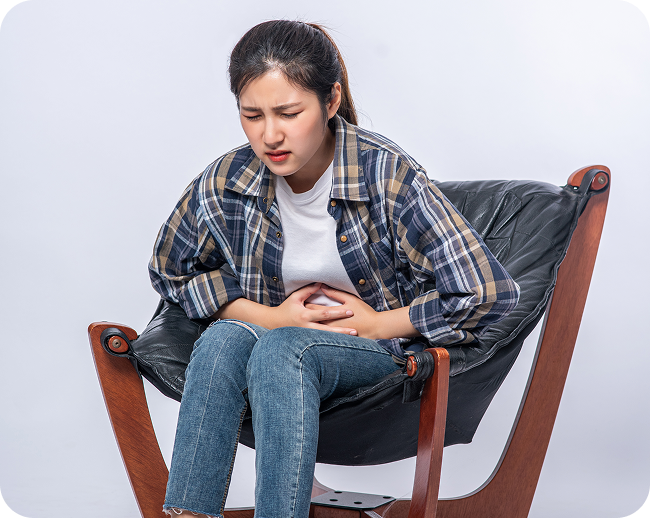
What Causes Fibroids?
The exact cause is unknown, but several factors may increase your risk:
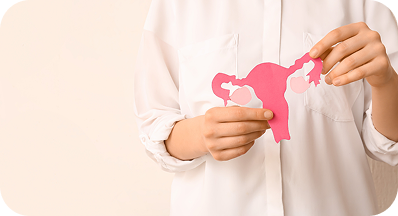
Hormonal Influence
especially Oestrogen and Progesterone

Family history of fibroids

Age
Common between ages 30–50

Ethnicity
more common and severe in certain populations
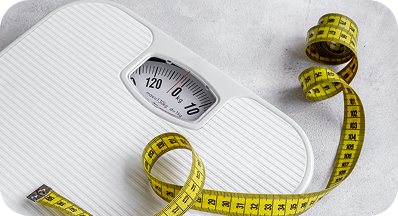
Higher body weight
Diagnosing & Treating Fibroids
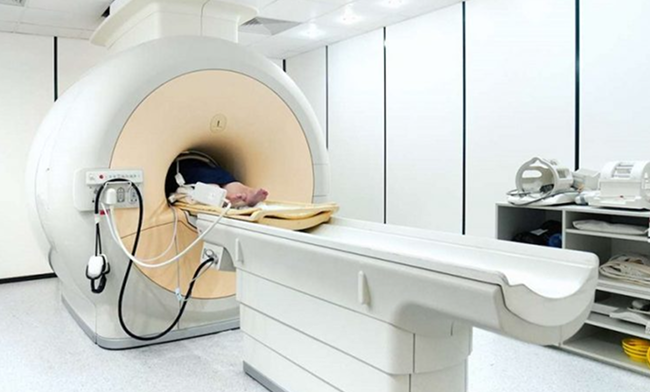
How Are Fibroids Diagnosed?
Fibroids are typically diagnosed through:
- Pelvic exam
- Hysteroscopy (camera inserted into the uterus for submucosal fibroids)
- MRI scan (for detailed mapping, especially large/complex fibroids)
Ultrasound (transvaginal or abdominal)
What Can Be Done?
Many fibroids don’t need treatment.
But if they cause symptoms or interfere with your life or fertility, several options exist:
- Medications to manage symptoms (temporary relief only)
- Definitive treatment via surgery, especially if planning for pregnancy
We focus on minimally invasive options that preserve the uterus and reduce downtime.
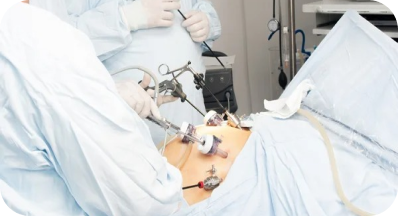
Laparoscopic Myomectomy
- Keyhole surgery to remove fibroids while keeping the uterus
- Ideal for women wishing to conceive
- Benefits: less pain, minimal scarring, shorter hospital stay
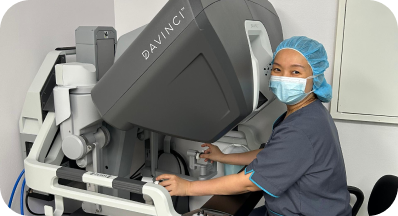
Robotic
Myomectomy
- Advanced, precise surgery using robotic arms (e.g. Da Vinci system)
- Allows safer removal of deeper or multiple fibroids
- Greater accuracy with quicker healing and less blood loss
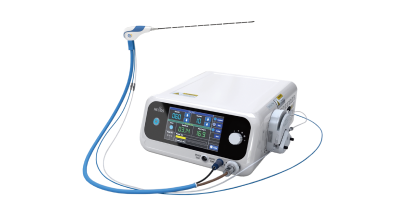
Microwave Ablation
- Uses heat to destroy the fibroid which will shrink over time and resolve symptoms
- Super minimally invasive with no surgical scars
- Day procedure with no overnight stay in hospital and quick recovery
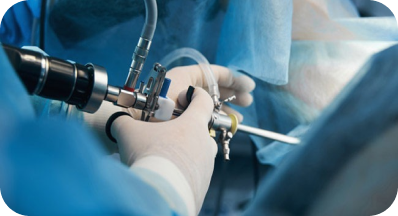
Hysteroscopic Resection
- Performed via the vaginal route, no incisions
- Suitable for fibroids growing into the uterine cavity (submucosal)
- Fast recovery, often done as a day procedure (no overnight stay in hospital)
Minimally Invasive Surgery with Dr.Debbie
- Smaller incisions
- Less pain and blood loss
- Lower infection risk
- Faster return to daily life
- Uterus-preserving techniques

Fibroids & Fertility
Trying to Conceive? Here’s What You Should Know About Fibroids and Fertility.
Fibroids inside or near the uterine cavity can affect your ability to get pregnant — but the right treatment can make all the difference.
How Fibroids Can Affect Fertility



💡The Good News?
Minimally invasive surgery — like laparoscopy or hysteroscopy — can improve your pregnancy chances.
These techniques help remove fibroids while preserving your uterus.
What to Expect If You Choose Surgery With Dr Debbie?

Detailed history, scan review, discussion of goals (e.g. symptom relief, fertility)

Blood tests, imaging, and counselling
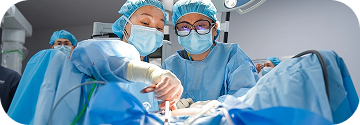
Most minimally invasive procedures are performed under general anaesthesia

Short hospital stay and fast recovery. Most women resume normal activities within days (if scarless surgery) and 1-2 weeks after keyhole surgery

Post-op review and long-term plan for wellness or fertility
What Our Patients Are Saying?
Discover how our compassionate care has made a difference for our patients!



As Featured On
Frequency Asked Questions
Are fibroids cancerous?
No, fibroids are benign.
Rarely, a different type of growth called a sarcoma which is cancerous may occur, but this is very uncommon.
Can fibroids grow back?
Yes, especially in younger women.
However, removing large or symptom-causing fibroids significantly reduces discomfort and risk of recurrence.
Is robotic surgery safe?
Yes, it is highly precise and well-established in modern gynaecological care, with excellent safety outcomes in experienced hands.
Will I need a hysterectomy?
Not necessarily.
Many women are eligible for uterus-preserving options like myomectomy or ablation.
Is fibroid surgery covered by insurance?
Most fibroid surgeries are covered however it can vary based on your insurance plan.
We can help you check your eligibility and submit supporting documents.

Book An Appointment
*Note: Submitting the date and time does not guarantee an appointment as it is subject to availability.
Our staff will reach out to you soon with a confirmation.







